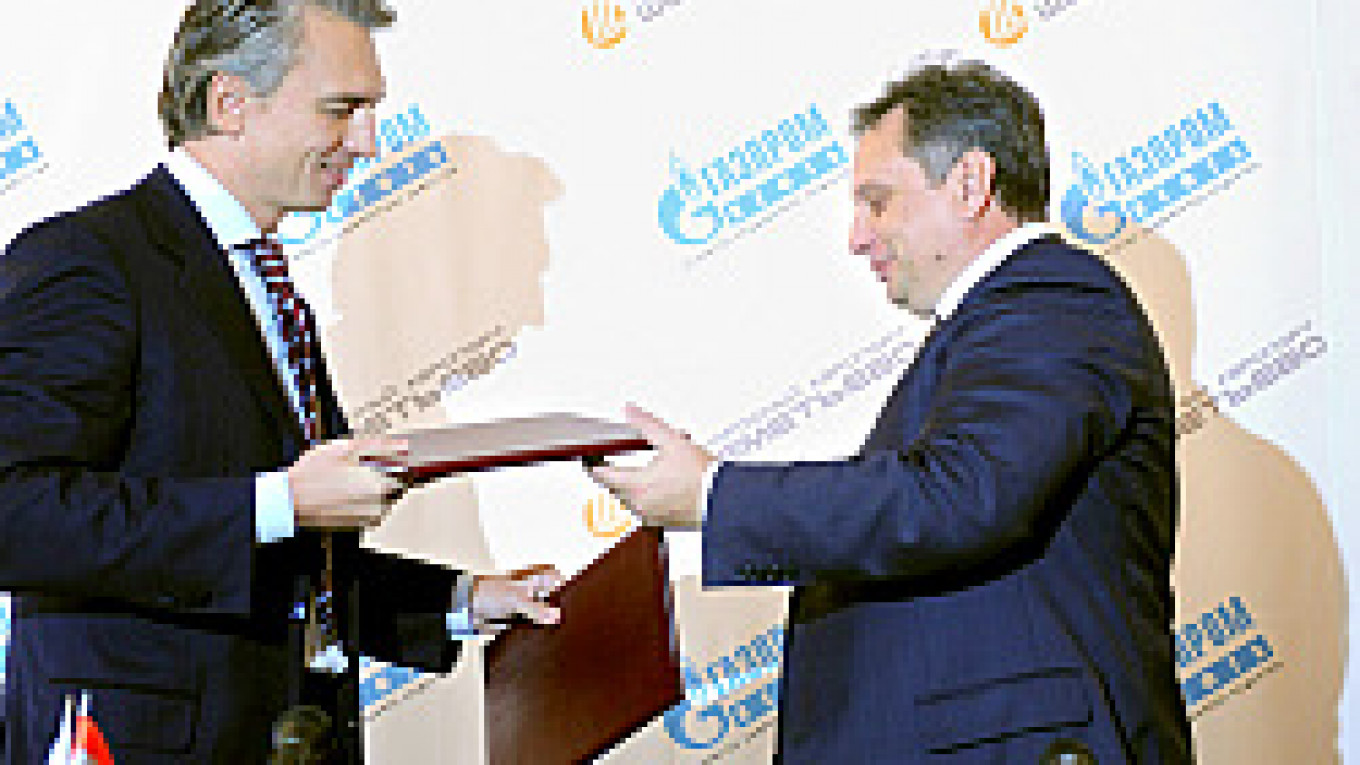Mikhail Vasilenko, general director of Sheremetyevo, called the deal "a serious signal and stern warning to middlemen and speculators," who, he said, have dominated the market.
Gazprom Neft, the country's second-largest supplier of jet fuel, agreed to build new storage and refueling facilities at the airport. The project's first phase, expected to be completed by 2011, will cost 1.5 billion rubles ($60 million).
"This deal is a new approach in the supply and storage of aviation fuel in the country," Vasilenko said. Jet fuel makes up 80 percent of airlines' expenses, he said, and reducing prices would provide a boost to the industry.
High fuel prices have caused major problems for domestic carriers, culminating in a state bailout of airline alliance AiRUnion earlier this month. The group's planes were being grounded because of unpaid bills, leaving passengers stranded across the country.
Prime Minister Vladimir Putin told his deputy, Sergei Ivanov, to resolve the AiRUnion dispute in late August, about a week before Russian Technologies announced that it would be buying the alliance and helping repay its debt.
Gazprom Neft chief Alexander Dyukov said the facilities "would increase the reliability and effectiveness of aviation-fuel supply at Sheremetyevo," and would give his company "a guaranteed market for its fuel in Moscow."
According to the agreement, Sheremetyevo will provide the land without any cash commitment, while Gazprom Neft will foot the bill to put up the storage and refueling facilities with a capacity to hold 400,000 to 600,000 tons of fuel.
"On completion, airlines would have unbridled access to the producer and supplier of aviation fuel without any middlemen. The impact on the price of oil is going to be enormous," Vasilenko said.
"Such initiatives are a consequence of the government drive to keep prices of aviation fuel down," said Kirill Kazanli, a transport analyst at Troika Dialog. "The essence of the agreement is to remove middlemen, who are the main cause of oil price hikes."
Vasilenko dismissed concerns that picking Gazprom Neft, which already controls huge chunks of the jet fuel market, would create another monopoly.
"This is the first in a series of agreements the airport plans to sign with various oil companies for direct supply of aviation fuel," he said. "In the present circumstances, Gazprom Neft is the closest supplier, with the cheapest logistics and efficiency."
Other oil companies are welcome to use the storage facilities, which can hold reserves for up to eight days, to supply airlines, he added.
Sheremetyevo, which now operates smaller storage and refueling facilities, will continue to control the quality of fuel as well as guarantee security.
Direct-supply agreements between oil companies and airlines should lead to a major fall in prices and break the monopoly of Airport Fuel Supply Trading House, which has dominated the market until now, said Yelena Sakhnova, transportation analyst at VTB.
"It is surely a big step forward," she said. "We are going to see other big and medium-size companies trying to sign on to such deals to avoid the middlemen."
Airport Fuel Supply Trading House was not available for comment.
A Message from The Moscow Times:
Dear readers,
We are facing unprecedented challenges. Russia's Prosecutor General's Office has designated The Moscow Times as an "undesirable" organization, criminalizing our work and putting our staff at risk of prosecution. This follows our earlier unjust labeling as a "foreign agent."
These actions are direct attempts to silence independent journalism in Russia. The authorities claim our work "discredits the decisions of the Russian leadership." We see things differently: we strive to provide accurate, unbiased reporting on Russia.
We, the journalists of The Moscow Times, refuse to be silenced. But to continue our work, we need your help.
Your support, no matter how small, makes a world of difference. If you can, please support us monthly starting from just $2. It's quick to set up, and every contribution makes a significant impact.
By supporting The Moscow Times, you're defending open, independent journalism in the face of repression. Thank you for standing with us.
Remind me later.


